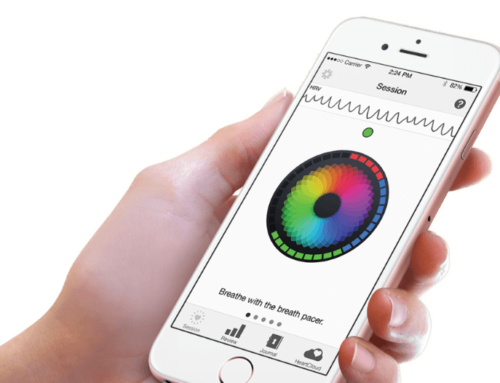 Helping a loved one navigate eating disorder treatment can be a difficult process. They will likely be confronting a multitude of uncomfortable emotions. It may often feel like even your best efforts to be supportive and helpful might not seem especially effective.
Helping a loved one navigate eating disorder treatment can be a difficult process. They will likely be confronting a multitude of uncomfortable emotions. It may often feel like even your best efforts to be supportive and helpful might not seem especially effective.
Doing your best to understand what your loved one is going through and knowing what to expect can provide a really great foundation to support them through their journey toward recovery. Here are few specific scenarios that might arise while your loved one is in treatment – and some ways you may be able to help.
1. Increased body image concerns
No matter what type of eating disorder someone is struggling with, treatment will involve consuming regular meals and snacks throughout the day. This is often an extremely challenging task for someone with disordered eating behaviors and can cause significant anxiety and a heightened fear of weight gain. Your loved one may seem particularly sensitive to comments intended to be complimentary or positive, such as “you look better,” “you don’t look as sick,” or “you look healthy.” Someone with an eating disorder may interpret such comments to mean they have visibly gained weight and will struggle to see the positive in this.
How to help: Avoid any comments about physical appearance, even ones that seem innocuous. Instead, you can give compliments about other things you’ve observed. For instance, if you notice your loved one seems happier or more relaxed, tell them! If they seem to be struggling, you can say something like “I know how hard you’re working, and I’m so proud of you.” Choosing comments that highlight the impact of treatment on mental and emotional health have a better chance of being interpreted as you meant them, and will help your loved one feel validated and connected.
2. Physical symptoms of adding more nutrition
Many of us are familiar with the physical symptoms someone may experience when they are suffering from an eating disorder, which can range from dizziness, headaches and dehydration to abnormal lab values and changes in vital signs. However, you may be less familiar with the physical consequences of adding appropriate nutrition back in following a period of malnutrition.
For anyone with disordered eating habits, getting back to regular meals can come with a variety of physically uncomfortable symptoms – predominantly gastrointestinal distress. Your loved one may be noticing that they feel bloated or nauseous after meals and may be experiencing constipation and/or diarrhea. Additionally, anyone who has been severely malnourished may have night sweats and brittle hair and nails as they get back to a regular diet.
How to help: Offer to do what you can to make your loved one more comfortable. Their treatment team can likely recommend certain measures to help relieve some of these symptoms, including hot packs for bloating and stomach pain and over-the-counter remedies for constipation or diarrhea. Offer to warm up a hot pack for them or pick up an over-the-counter medication. Keep asking what else you can do. The treatment process is often so overwhelming that it might be hard for your loved one to find the motivation to do these things for themselves. Offering to help can be a huge relief. If you ever notice that your loved one is experiencing more significant physical symptoms, such as fainting, disorientation, or chest pain, help them to seek immediate medical attention, as these can be indicative of more serious conditions.
3. Difficulty seeing the positives of treatment
While it may be a relief to you to see your loved one seeking help for their eating disorder, you may find that they are nowhere near as enthusiastic. When someone with an eating disorder enters treatment, we ask them to confront many of their worst fears on a daily basis.
Finding recovery is a process of wrestling with anxieties that may have been present for many months or even years. This can be both exhausting and terrifying. You may also notice that, contrary to what you expected, your loved one seems more depressed, hopeless or anxious than before they entered treatment. They may not seem motivated to participate in treatment at all. It can be frustrating and scary for those who care about the person in treatment.
How to help: Validate your loved one’s distress. Even if it doesn’t always make sense to you, understand that their reactions to treatment – anxiety, sadness, hopelessness – are truly the emotions that they are experiencing. Let them know that you understand how distressing those emotions can be and offer your support. You can say something like, “I know how much work you’re doing. I think anyone in your situation would feel really overwhelmed.” Then, help them remember their motivators for recovery. Say something like, “I remember you told me that you were really excited about being well enough to get back to going to your book club. What book are they reading this month?” Or “I know treatment has been really stressful, and it must have felt like such an accomplishment to be able to take your son to his baseball game this weekend!” Pointing out the positives about the recovery process will be helpful when your loved one has trouble seeing them.
Overall, the most important thing that you can do for your loved one as they go through treatment is to be there for them. Understand that they may not react to the process as you’re expecting – and that’s okay. No one journey to recovery is the same and things that work for some may not work for others.
Knowing that you care about them and are committed to seeing them reach all of their recovery goals can be a huge relief for someone in the process of getting treatment. Be patient, and don’t forget about taking care of yourself. Reach out to your supports; treatment is a difficult process for everyone involved.
The road to recovery can be a long one, but it is worth it, and having you with them along the way can make all the difference for your loved one. Don’t forget, we are always here to help you problem solve.
####
Rachel Drummey PMHNP is a nurse practitioner working in PHP and outpatient providing care to adolescents and adults with eating disorders. She received her master’s degree in nursing with a specialty in mental health across the lifespan from MGH’s Institute of Health Professions. Eating disorders are Rachel’s main area of focus, and she also works with clients with various comorbidities, including PTSD, depression, anxiety, and personality disorders. In her free time she enjoys running, biking, and yoga.







